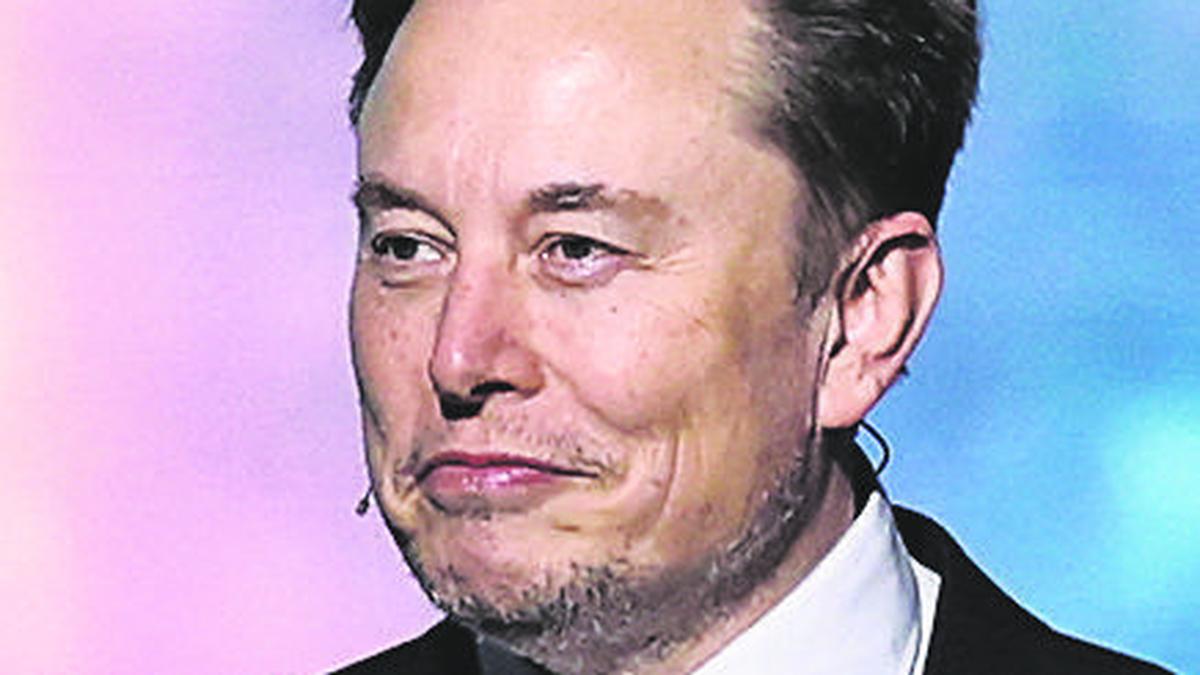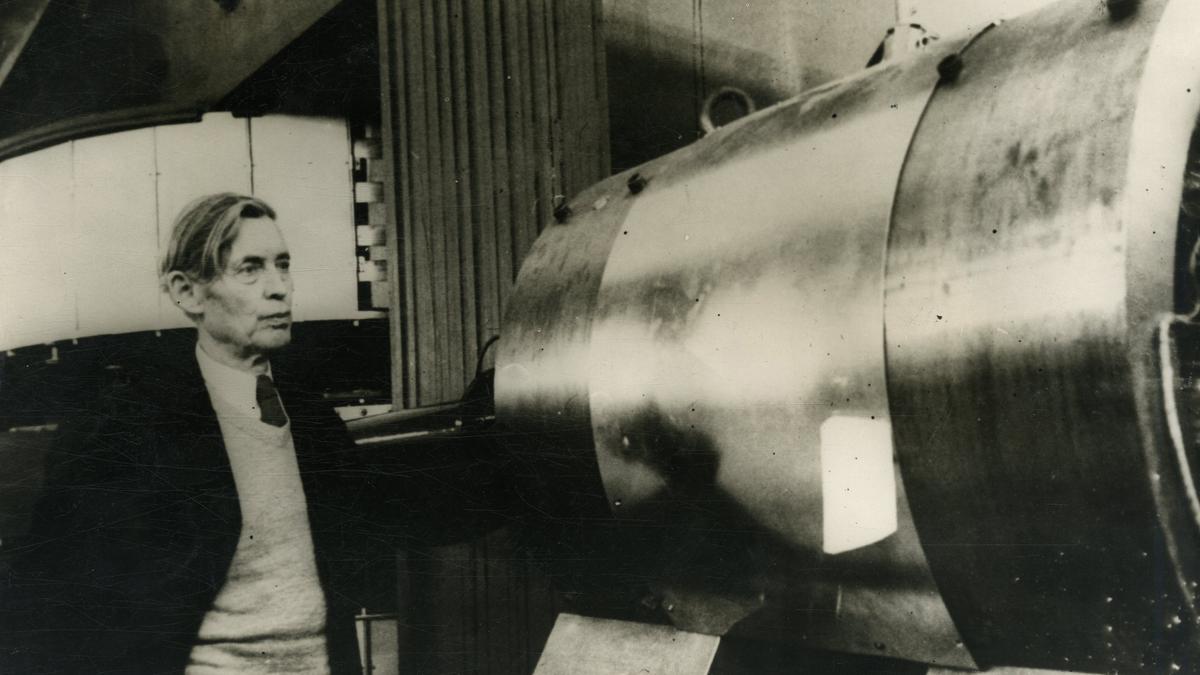[ad_1]
SpinLaunch, in Long Beach, is part of a cluster of “New Space” firms in and around Los Angeles. They are heirs to a century-old aerospace tradition, rebooted in 2002 when Elon Musk, a then-little-known entrepreneur, rented a warehouse in El Segundo for a startup called SpaceX. The 200kg payloads that SpinLaunch will handle are minuscule compared with those now launched by SpaceX, whose Falcon 9 rockets can loft nearly 23 tonnes. But small can be beautiful. The Electron launch vehicles made by Rocket Lab, one of SpinLaunch’s neighbours, have only slightly larger loads—320kg. Rocket Lab is the only New Space firm so far, bar SpaceX, to make money by launching things into orbit.
The Angeleno New Space cluster is, however, about more than just launchers. It is a back-to-the-future kind of place, where fantasies from the Space Age’s heroic early days are becoming real. Mining asteroids. Orbital manufacturing. Private space stations. Moon buggies. Exploring Mars. All are there, alongside the more humdrum (if more reliably profitable) businesses of building and servicing satellites. Spin is there too, in abundance. But, like Mr Musk himself, those involved are true believers—space cadets who see the world beyond Earth as something not just to be explored, but conquered.
Geographically, AstroForge is in Huntington Beach, where Saturn V Moon rockets’ third stages were assembled. But conceptually it is out of this world. Its purpose is to extract platinum and five related precious metals (iridium, palladium, ruthenium, rhodium and osmium) from asteroids.
Most asteroids are rocky bodies of little interest to miners. A few, though, were once parts of the cores of planets that got smashed up by collisions during the solar system’s wild youth. These objects are made mostly of alloys of iron and nickel. But they also contain useful amounts of the six platinum-group elements. Mining them is an old idea, and Matt Gialich and Jose Acain, the founders of AstroForge, think they can make it happen.
They are already tracking suitable targets, and have flown a mission to test their technology in space. The plan is to land robotic probes on their quarry, evaporate the alloy by applying intense heat to it, and then stream the vapour past a magnet to winnow the non-magnetic platinum-group atoms from the magnetic iron and nickel ones. That done, probes will return to Earth bearing modest quantities of bullion (about $60m-worth per mission, at current prices) that will nevertheless make shareholders rich.
Another dream being revived is zero-gravity manufacturing, based on the fact that some materials solidify differently in orbit from the way they do on the ground. Jason Dunn runs Outpost Space, in Santa Monica. He is interested in ZBLAN, a mixture of the fluorides of zirconium, barium, lanthanum, aluminium and sodium (chemical symbol, Na). Optical fibres made of this should in theory be superior to the conventional sort, for ZBLAN is clearer and transmits a wider range of frequencies. That advantage, though, is countered by the stuff’s tendency, when drawn into fibres, to crystallise rather than becoming a glass. This ruins its properties.
But that does not happen in orbit. Outpost Space is, therefore, developing a device called Carryall which can take a robot factory into space and return it to Earth using a folding heat shield and a paraglider. That factory will be able to turn a five-tonne load of ZBLAN into fibres.
Will Bruey is interested in medicines rather than materials. Having once worked for SpaceX, he founded Varda Space Industries, in El Segundo, in 2021. His plan is to improve certain drugs by crystallising their ingredients in orbit. Crystal structures often vary in solubility, dissolution rate and stability, which all affect their bioavailability. Sometimes, those with the best properties are easier to make in space than on Earth. In 2023, using an orbital vehicle designed by Rocket Lab, Varda tested the trick with ritonavir, an anti-HIV drug. It plans another launch next year.
Mr Bruey seems content, for now, to stick to manufacturing. Mr Dunn, however, has broader ambitions—for Carryall, as its name suggests, can do more than carry factories. Its maximum payload is a hefty ten tonnes. This is of particular interest to armed forces, for it may let them store pieces of kit in orbit until the order comes to deliver them to some otherwise-inaccessible part of the world. America’s air force is paying for the first four launches of a smaller test version, Ferryall.
Carryall and Ferryall (capacity, 100kg) may also help keep space tidy without polluting the atmosphere. De-orbiting uperannuated satellites (as regulations already require) will soon, Mr Dunn reckons, mean ten tonnes a day of hardware is burning up on re-entry. This, he thinks, will generate so much toxic dust that such fiery de-orbitings will no longer be tolerated. Outpost will be ready to provide non-fiery ones.
Asteroid mining, tick. Factories in space, tick. Want to stay on a private space station? Jed McCaleb, a fintech billionaire, has hired Max Haot, a serial entrepreneur, to make it happen. The result, Vast Space, is also in Long Beach. Haven-1, its first product, will be a cylinder 10.4 metres long and 4.4 metres in diameter, with wing-like solar panels, a docking port at one end for arrivals and departures, and a window at the other for sanity and musing on the human condition from orbit.
Though only the well-heeled need apply, check-in should soon be possible. The plan is to launch towards the end of 2025—just in time to wow the judges of NASA’s Commercial Low-Earth-Orbit Destinations programme, who will shortly thereafter pick a replacement for the International Space Station when it is deorbited sometime after 2030.
Even orbiting Earth, however, may seem a bit parochial. Roving around the Moon has more kudos. For this, Venturi Astrolab, founded in Hawthorne by Jaret Matthews, also ex-SpaceX, has just the thing. FLEX (Flexible Logistics & Exploration) is designed to carry two passengers on trips of up to 70km across the lunar surface. A prototype already exists and Astrolab is one of three firms contracted to develop surface transport for NASA’s return-to-the-Moon Artemis programme.
A new life in the off-world colonies
And then there is Mars. Mr Musk once said he hoped “to die on Mars, but not on impact”. He is only 53, so that day, one hopes, is some way off. But the race by private firms to land there is now in earnest.
In 2023 Mr Musk suggested SpaceX, now based in Texas, might manage it with an uncrewed craft in three or four years’ time. Tom Mueller, Mr Musk’s first hire at SpaceX back in 2002, hopes to beat him. Mr Mueller’s company, Impulse Space, in Redondo Beach, makes small rockets that move satellites around in space. It has teamed up with Relativity Space, an aspiring launch firm founded in Long Beach. The plan is for Relativity to provide the launcher and Impulse the cruise stage, entry capsule and lander for a Mars trip. Departure is scheduled for 2026—an ambitious target since Relativity has not yet had a successful launch.
As it was in the early Space Age, Mars thus remains the dream of dreams—the one place beyond Earth where people might plausibly live. Mr Mueller talks of a settlement there of a million souls. Mr Musk has made a similar suggestion. The obstacles would be formidable, even to the less ambitious goal of setting up a nursing home for retired billionaires. But formidable is not insurmountable. As for the new settlement’s name, Los Nuevos Angeles has a nice ring to it.
Catch all the Business News, Market News, Breaking News Events and Latest News Updates on Live Mint. Download The Mint News App to get Daily Market Updates.
MoreLess
[ad_2]
Source link





